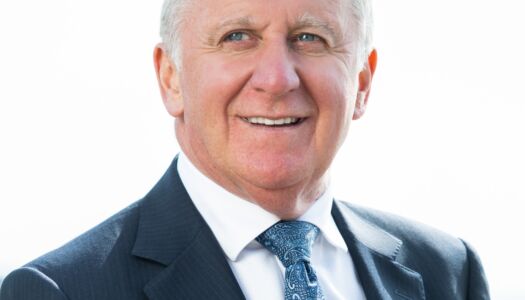It’s significant because access to green and sustainable investment opportunities is no longer something reserved for the privileged professional investor – it’s reflective of a mindset where sustainability as an issue is moving increasingly into mainstream public consciousness.
And so it was fitting that, just days after the budget speech, Jersey Finance launched its new sustainable finance strategy and long-term vision, the result of an extended piece of work over the past year with Andrew Mitchell and his team at Equilibrium Futures.
It’s a vision that aims, by 2030, to see Jersey recognised by its clients, key stakeholders and other partners as the leading sustainable international finance centre in the markets it serves.
It’s true that events of the past 12 months have sparked action in the sustainable finance sector – indeed analysis has shown that ESG funds have outperformed traditional funds over the COVID-19 period.
But the reality is that sustainable finance has been on a journey of evolution for some time. Informed by the UN’s Sustainable Development Goals (SDGs), focus has increasingly grown on how re-wiring the financial system can help accelerate solutions to a wide range of complex, interconnected global issues – from biodiversity loss and climate change to inequality and poverty – to the extent that, between 2016 and 2018 the value of sustainable investment assets managed globally grew 34% to more than US$30trillion (Global Sustainable Investment Alliance’s Review 2018).
Jersey already has a good story to tell in this space – firms in Jersey have already started to integrate ESG standards into their business models and firms are adapting their client offering to respond to changing demands. We’ve also seen the emergence of a number of large Jersey-based alternative fund structures that have been deploying much-needed capital into areas such as renewable energy, with the industry facilitating billions of pounds of investment into impact and ESG funds.
As our new report makes clear, the business case for continuing to be part of the sustainable finance solution in the longer term is compelling.
The global shift towards a greener, more inclusive economy is gathering pace; investors are no longer focused solely on returns, with growing demand for portfolios to reflect purpose, including improvements in environmental, social and governance standards.
Driven by greater awareness around ‘purpose-driven’ investment, shifts in political focus, greater standardization and of course a pandemic, sustainable finance continues to grow and will cause disruption in the financial system for years to come. ESG assets are likely to increase exponentially over the next 20 years to surpass US$100 trillion by 2028 (Deutsche Bank), for example.
The opportunity is clear, but more than that, Jersey has a responsibility to leverage its expertise and capital to support the transition to an environmentally and socially sustainable global economy.
To do that, though, we need to adapt and change. While Jersey has done well to build its reputation on outstanding governance, expertise and the ability to transact efficiently, emerging regulation and reporting on sustainability, along with increasing evidence of the profitability of ESG funds, mean that we must do more and respond appropriately.
We have strong foundations, but now is the time to increase our efforts to speed up the transition.
That’s why our vision sets out a number of key recommendations and guiding principles to help us achieve our goal, including:
- Building strong stakeholder partnerships, to give all sectors within our industry the tools to integrate sustainability within a joined-up policy framework
- Nurturing green finance on a green island, with greater collaboration between the finance industry, Jersey’s financial regulator the Jersey Financial Services Commission, the Government of Jersey and – crucially – the people of Jersey
- Improving perception and credibility by measuring performance against independent frameworks to reinforce Jersey’s reputation as a good global actor
- Increasing capacity to upskill across the board to prepare for and take advantage of the global trends in ESG and sustainable finance
In fact, the truth is that, if we are to achieve our goal, this is not just a finance industry vision at all. It is a vision that we must all share.
Which is why collaboration is absolutely at the heart of our strategy. We need to be better at collaborating with our stakeholders in government, the regulator, industries beyond our own and the wider public in Jersey and elsewhere; be better at working together with like-minded parties; and be better at communicating clearly our shared journey.
Just as the UK Chancellor set out the framework for an accessible means to drive ESG change, so too can Jersey’s finance industry and the people of Jersey share in playing a part, collectively, in supporting the mass movement towards a more sustainable future.
The next few months and stages of our strategy will be exciting as we set out our stall, re-wire our industry and put the wheels in motion on this hugely important piece of work. Because our industry simply has to put sustainability at its core if we are to be successful in delivering the impact we want, both at home and internationally in the years ahead.
Ultimately, I am convinced that Jersey has all the tools in its arsenal to play a major role in delivering positive change, both at home and further afield. And as we all know, now more than ever, driving positive change is absolutely vital.
You can view our sustainable finance strategy, Jersey for Good – A Sustainable Future, here. Alternatively, you can watch a recording of the launch event here.





